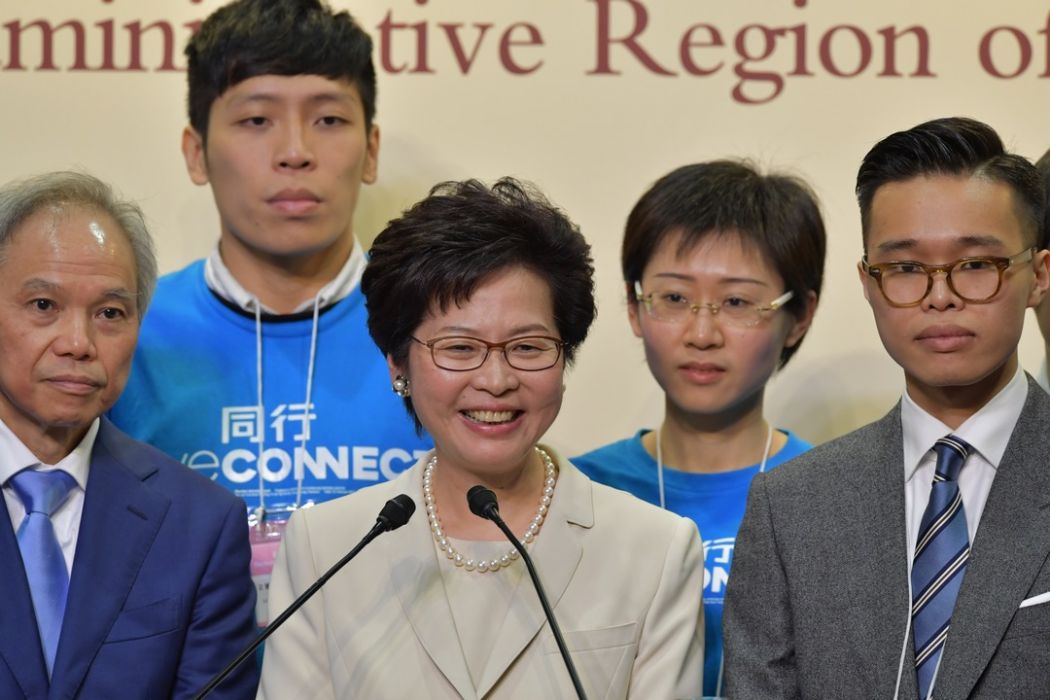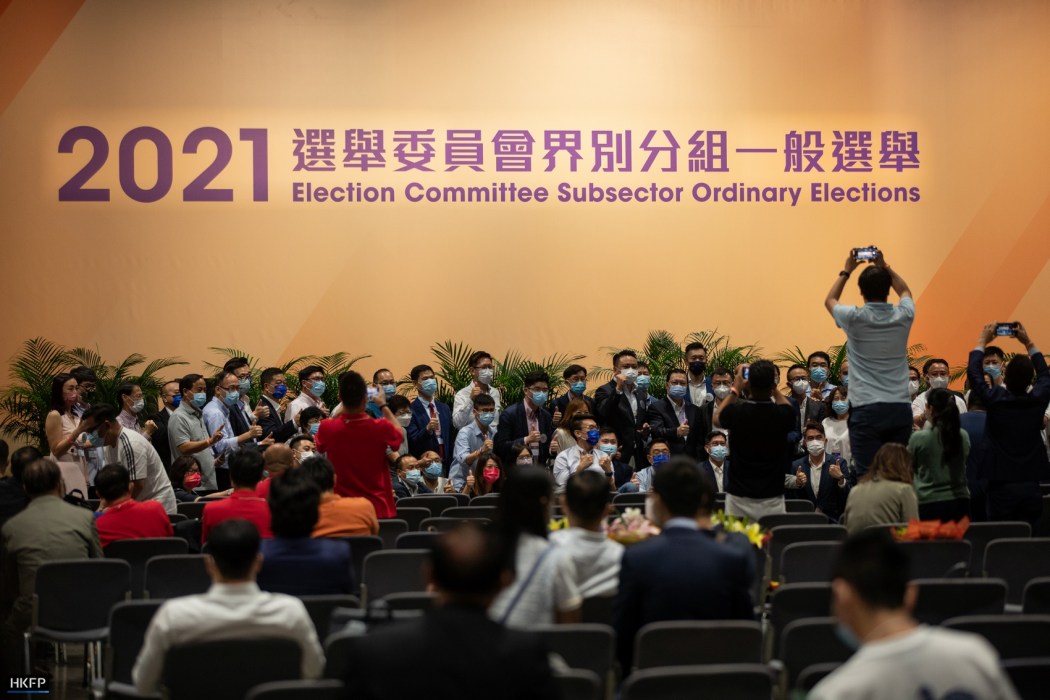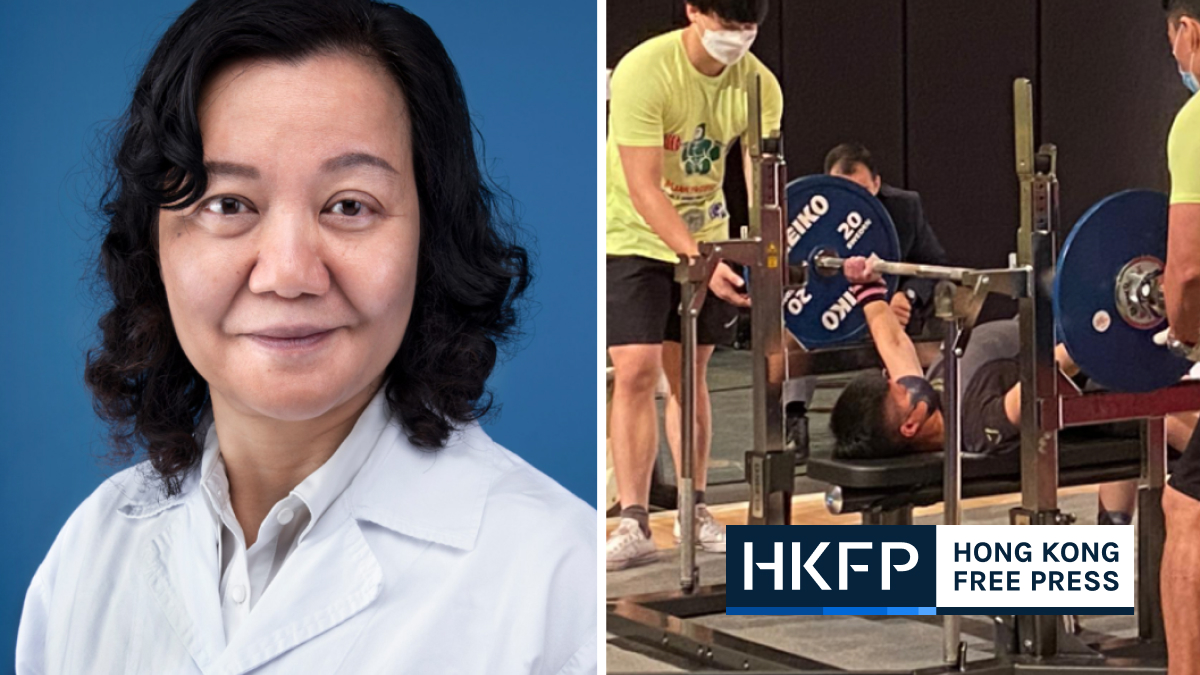Carrie Lam, Hong Kong’s current chief executive, has said she will not run in the upcoming small-circle leadership election.
Lam announced during her daily Covid-19 briefing on Monday that she would not enter the race. The nomination period for candidates, which lasts until April 16, opened the previous day.

“I will not run in the sixth chief executive elections,” Lam said. “In other words, I will complete my five-year chief executive term on June 30, and will officially end my 42-year career in government.”
She thanked the central authorities for supporting her throughout her five-year term, saying she had faced “unprecedented pressure,” from handling the anti-extradition bill protests to “interference from foreign forces” and the Covid-19 pandemic.
Lam went on to express her gratitude to state organs in Hong Kong including the Liaison Office and the Ministry of Foreign Affairs, as well as Chinese provincial leaders for their “support in allowing Hong Kong to deepen its cooperation with the mainland.”
“I also need to thank my team, including chief secretaries, bureau directors… and civil servants for their hard work,” she said, adding that she was also grateful for her family.

Lam said she first expressed her intention to not seek re-election to Beijing in March last year. She said there was only one consideration, and it was her family. “They all thought it’s time for me to come home,” she said.
Lam said she had received “understanding and respect” for her decision from the central government.
In her last policy address, delivered last October, Lam put forward plans to restructure government bureaux as well as long-term strategies including the Northern Metropolis, a large-scale development plan that seeks to house 2.5 million people and generate 650,000 jobs in the New Territories.
Asked if it was a “pity” that she would not be able to oversee these projects after her departure, Lam said changes in the administration would not affect “policy continuity” if the proposals had garnered broad support.
“[I]t has a key function in the Greater Bay Area, I don’t see why the next administration would give up on this Northern Metropolis plan,” she said.
Lam did not answer questions about prospective candidates, but said she had not yet received any resignations from officials in the administration.
Previous postponement
The city’s leadership race was originally scheduled for March 27. In mid-February, Lam and the Executive Council evoked emergency powers to push the election date to May 8, citing the seriousness of the fifth wave of Covid-19.
The postponement came after China’s leader Xi Jinping reportedly laid out “important instructions,” which ordered the local government to “put controlling the pandemic as the mission that supersedes all.”
At the time, Hong Kong’s daily infections – led by the highly transmissible Omicron strain – were increasing exponentially, and had reached 6,116 the day before Lam announced the election’s postponement. The daily case count went on to peak at 76,991 on March 3, before gradually declining to around 8,000 on March 27, the original election date.
As a result, the nomination window for potential chief executive candidates was rescheduled to between April 3 and 16.

In the 2017 leadership race, Lam won with 777 votes against former financial secretary John Tsang and retired judge Woo Kwok-hing.
From 2007 to 2012, Lam was the secretary for development, before becoming Leung Chun-ying’s chief secretary during his term as chief executive from 2012 to 2017. According to the Chief Executive’s Office, Lam joined the Hong Kong government in 1980 and has served in 20 different positions over the years.
Small-circle election
On May 8, the 1,462 members of the Election Committee will decide Hong Kong’s next leader for the city’s 7 million-odd citizens.

The upcoming chief executive election will also be the first leadership race since Beijing’s election overhaul on March 2021.
After the revamp, the Election Committee saw its seats increased from 1200 to 1500, and its composition largely redrawn.
A fifth section was introduced to allow in more members from China’s top legislation and political advisory bodies, while 117 seats once allocated to the district councils were completely replaced. Beijing also compressed sectors which were previously dominated by pro-democracy candidates and created seats for groups with strong mainland ties.
As a result, the Election Committee voters are mostly government-designated figures or elites who were not installed by direct elections.
Additional reporting by Kelly Ho and Hillary Leung
Support HKFP | Policies & Ethics | Error/typo? | Contact Us | Newsletter | Transparency & Annual Report | Apps
Help safeguard press freedom & keep HKFP free for all readers by supporting our team

LATEST FROM HKFP
HKFP has an impartial stance, transparent funding, and balanced coverage guided by an Ethics Code and Corrections Policy.
Support press freedom & help us surpass 1,000 monthly Patrons: 100% independent, governed by an ethics code & not-for-profit.










